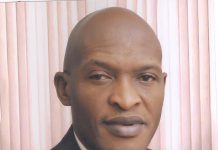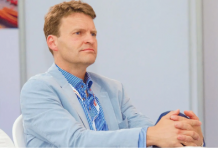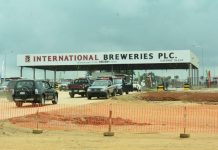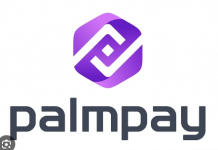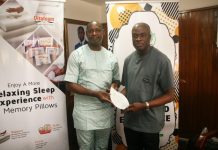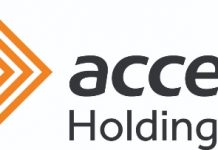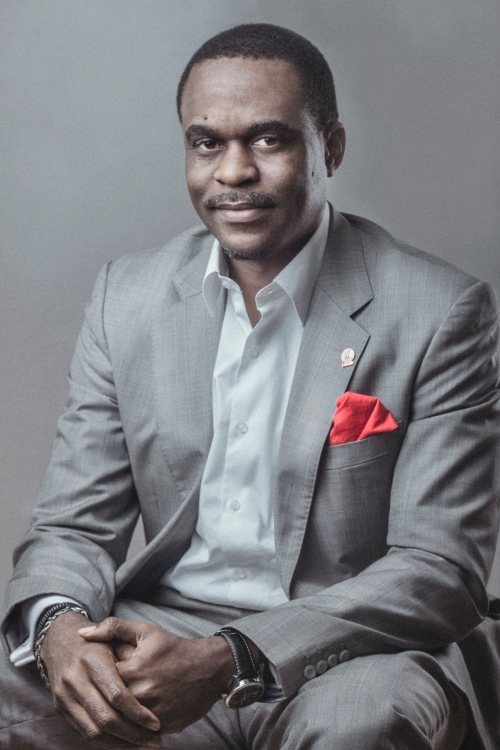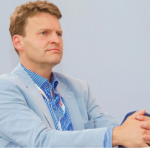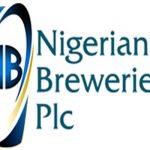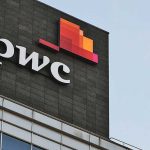Prior to COVID-19 pandemic, the integrated marketing communication, particularly the advertising industry has had some structural challenges and the pandemic has compounded those challenges. In this interview with GODDIE OFOSE, the managing director of TBWA\ The Disruption ® Company and former president of Association of Advertising Agencies of Nigeria (AAAN), KELECHI NWOSU, said that government should consider a stimuli package for the industry. He further stressed that the industry does not want any free money, but that government should enforce the existing APCON regulations that only recognized and licensed firms to do Government communications. The renowned creative advertising specialist also said that capitalist or even socialist economy cannot function without advertising. Excerpt.
How would you sum up last year regarding NIGERIA Integrated Marketing Communication industry?
It was a tough year given that COVID-19 dropped Nigeria into a recession. QTR 2 (-6%) QTR 3(-3%). Clients cut back on marketing and marketing communication budgets and that clearly adversely affected the IMC industry. We (IMC) support demand and without production and supply, why would clients pursue demand. Except for a few advertisers with an eye on the long-term value of brands, who maintained their advertising even if modestly, most other advertisers quickly cut their marketing communication spend
What is your projection for 2021?
World Bank and other international bodies predict a recovery and growth of 2% for Nigeria. There is also the resilience and tenacity of many brands to brave the conditions and see how to recover from last year. Those are motivating factors that suggest that the year will have a modest recovery for the IMC sector. Note though that the recovery will be skewed positively towards agencies that are supporting brands in the growing sectors such as Telcos, fintech, e-commerce; health and pharma; food and processing and so on.
How has the pandemic affected the African advertising?
I cannot really speak on African advertising and the pandemic because I have not seen any studied figures. But the trends in Nigeria, South Africa and the world will not be different.
Advertising supports demand and where there was little or no demand, the industry and the players suffered loss of revenue to varying degrees. The rate of loss of revenue will be correlated to the diversity of the account portfolio of the Agencies all over Africa. We must also realise that Africa is underdeveloped and generally under advertised.
Check out the article by Ronald Redmond Nigeria Advertising Sector Path to Growth (May 20. 2020 where he states that Nigeria Advertising is underperforming for both macro and sectoral reasons
He says : that even though our GDP $397 billion is currently the largest economy in Sub Saharan Africa followed closely by South Africa GDP $366 billion, the South African advertising sector is $2.6 billion (.7 percent of GDP) and this is almost six times the size of the Nigerian advertising sector $450 million (.1 percent of GDP).
African Continental Free Trade Area (AfCFTA) is a factor that will drive competition: adversely and positively for the industry. We are still studying the possible effects as it has just started this year.
What would it take to help bring back the industry to its usual self?
Firstly, recognition that before COVID-19, we already had structural /sectoral problems and seek to fix these and these include: empanelling of the APCON COUNCIL so that the regulation and leadership role of APCON is enhanced.
In particular, it will allow reforms already formulated for the industry to take off and that should cascade to better professionalism and value for the players in the industry.
Send of, HASG (Heads of Sectoral groups) should continue to pressure Federal Government of Nigeria on the above. Also, the IMC industry should be concerned about MACR0-ECONOMIC policies and work with the various sectors (TELCOS, MANUFACTURING, and Finance etc.) to influence and stabilize government policies. Adverse policies on the advertisers especially the Fast Moving Consumer Goods tend to have a huge impact on the IMC industry.
The above is also an opportunity to demonstrate our contribution to the GDP and cyclical flow of goods in the economy. The role of advertising is often underplayed whereas we are responsible for providing consumer awareness/education and choice; we instigate competition which is good for the consumers and for the mass production and mass employment. We help with behavior change for tangible and intangible goods. You cannot literally have a capitalist or even socialist economy without advertising.
Thirdly, IMC practitioners also need to design and create products and platforms for Clients and for themselves. Our Country is in dire need of Creativity and productivity: it cannot be left to advertisers alone and Agency should utilize the skills they have built to create these. For us at TBWA\CONCEPT, the Spirit of LAGOS Behavior change campaign, (2012-2014), Proudly Made in Aba (2017 & 2018) are great examples.
On the other hand, Government in recognition of the above roles should consider a stimuli package for the industry. We do not want any free money, but that they should enforce the existing APCON regulations that only recognized and licensed firms should do Government communications. If FGN does the above at all levels of Government (federal/state/Local), it will stimulate huge growth for our industry.
Some said experiential marketing sub sector suffered more than core advertising, PR and others during the pandemic. Why is this so?
Experiential marketing, unfortunately, was hit more because of the social distancing and lockdown. Core advertising and PR were also affected by the lockdown, but the difference was that the services for some clients could be rendered remotely unlike services for experiential.
Second wave has dealt a blow or two on the industry the beginning of this year. What is your preview of the first quarter of this year?
Slow and modest recovery is what I see. Brands are eager to get back to production and selling. The consensus seems to be that economic recovery is far more important than a lockdown with limited benefits. Even though vaccination may or may not happen, Nigerian brands have understood and are still learning how to deliver products safely to consumers. Demand pattern is changing in favour of sectors that are critical as I have mentioned: Telcos/ISPs: food and FMCGs; pharma and entertainment etc.
TBWA has been in the forefront of helping SMEs. Can you share this project with us?
SME SHOP is our deliberate response to the SME market. Realizing that the sector was critical to the growth in Nigeria, we studied the market four years ago and launched our offering known as the SME SHOP. Clearly, we still have a lot to learn about SMEs and their Communication needs, but we have however had modest successes in Capacity Training 7 Consulting for SMEs in Branding; Business growth; how to get loans and set up financial processes. We have been to affect the above working with SAWUBONA, an SME business consultant and other collaborators.
For instance, typical challenges for SMEs were exacerbated by Covid-19. We, at TBWA\CONCEPT, in partnership with Ford Foundation, have designed and now implementing a programme SME SHIFT which answers some of these SME challenges.
The programme has free training videos in modules with experienced and deep facilitators speaking on different need areas which we learnt via a pre-programme research. Mrs. Nike Ogunlesi of RUFF’N” TUMBLE, Ms. Uloma Ike of BOI; Ranti Atunwa of TBWA\CONCEPT and six other prominent facilitators are part of the faculty. Check it out on smeshop.ng. So far, we have trained over 1000 businesses online, offering free business clinics to 50 SMES, majorly female owned.
What has been the impact of Aba project? What were the contributions of the government in those projects?
Proudly Made In Aba (PMIA) developed and supported by Ford FOUNDATION over three years ago has been a success. It attracted businesses to the SMEs in ABA and generated enquiries that led to revenue increases. The Leather Sector and the textile sector reported N1.6 billion Naira direct sales during the campaign period in 2018. An estimated $100,000 worth of free, positive publicity was generated for brand Aba.
There was a HACKATHON sponsored by Ford FOUNDATION that resulted from the first phase of PROUDLY MADE IN ABA (PMIA) and over $100,000 was given as prizes to the winners who were selected based on how they would use technology to build brands out of Aba. Clintonel, a second prize winner has successfully started a CAD supported, manufacturing Lab in Aba. We have also consulted for a few Aba based brands in fashion and leather.
We were minimally supported by the Abia State Government via logistics and information, but we are yet to get their full support to help the Government strategically build some strong brands in fashion, textile, leather, and fabrication out of Aba. All attempts to gain the attention of the ABSG have failed.
Finally, how would you sum up Nigeria creative advertising?
Tough but growing .We need to collaborate more within the disciplines of marketing communication. We need to be more innovative and daring and we need to reflect more of our contemporary Nigerian culture. Clients are also asking for results: we ought to prove that we provide value (which we do) and we need to ensure we get remunerated for it.
Agency Businesses also need to develop own platforms and products because our market is too shallow to wait for others to develop and then pitch the businesses.
Federal Government must stimulate and support the industry by following the regulations that will allow only licensed and registered practitioners to provide advertising services .Unregistered Firms from abroad that provide services to Nigerian Advertisers must be regulated and stopped( where non-compliant) since that practice is not supported by Nigerian laws and is a loss of tax revenue for Nigeria.
Story 2: Ogun State Signs Partnership Agreement with Fan Milk to Build Dairy Farm
Fan Milk Plc, a DANONE Company, has signed a partnership agreement with the Ogun State Government to establish its flagship dairy farm at the Odeda Farm Institute, in the Odeda Local Government Area.
The partnership, an alliance with the state, is to introduce global standards in dairy farming, empower local communities and reduce unemployment rates. It signifies Fan Milk’s commitment to enhance the impact of the Central Bank of Nigeria’s backward integration programme and reinforce the Federal Government’s initiative to achieve food self-sufficiency in the country. In addition to boosting local content within the sector, the project will serve as a model, best-in-class dairy farm operated by local dairy experts to support local suppliers, housing a milk collection centre, purchasing feed locally and collecting milk from other farmers.
The Ogun State Governor, Prince Dapo Abiodun, expressed his satisfaction with the partnership, and said that “We welcome such future-forward partnerships, which align with our vision to create an enabling environment for Public Private Partnerships. As Nigeria’s Gateway State, Fan Milk’s partnership gives us the opportunity to contribute quickly and easily to job creation at scale.”
“It is another symbol of our plans for 2021 and signifies our strong commitment to fostering relationships that grow the state’s revenue. The government and people of Ogun State look forward to the advancements collaboration like this will bring to local farmers and communities,” Abiodun stated.
The farm, which includes a Fan Milk DANONE Dairy Training Institute, is being established to up skill existing and new local dairy farmers in the adoption of farming best practices.
In his response, the Chairman of Fan Milk, Mr. Olayinka Akinkugbe, said, “For us, this partnership is bigger than the CBN backward integration program. It is about the 2,000 people or more who would be impacted through this initiative and the change we seek to bring to Nigeria’s food architecture. We are investing across the value chain and ensuring the support of the long-term ambitions of the state.”
Mr. Jérôme Pasquier, French Ambassador to Nigeria, commended the initiative as a strong representation of bilateral relations between the Nigerian and French governments, and expressed a desire for an increase in such partnerships that contribute to achieving the United Nations Sustainable Development Goals.
Reiterating the company’s commitment to expanding local contribution to dairy industry, the Managing Director of Fan Milk, Mr. Ferdinard Muoko, said that “Fan Milk Plc remains committed to protecting dairy’s important role in every Nigerian’s diet. That is why we have resolved to invest through the delivery of a series of coordinated education programmes and tools to support regenerative agriculture, the Danone Dairy Training Institute should reach over 500 farmers and dairy workers over a five year period.”
The dairy product manufacturer will receive technical support from its parent company, DANONE, which as part of its 2030 goals and in line with key priorities of the UN Sustainable Development Goals, is keen to impact local health and foster inclusive growth.








